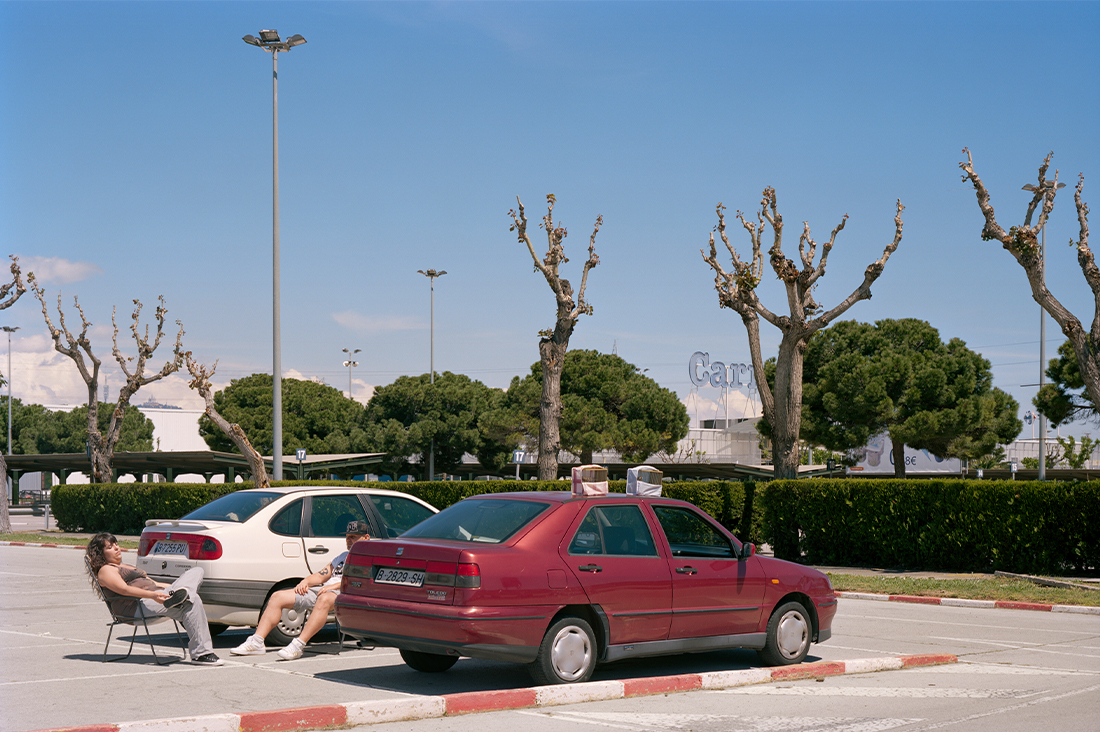The resilience of the human species has a plundering force, capable of devastating and violating the landscape until it is left barren. The leisure spaces portrayed in this work, at first glance, provoke bewilderment – then reflection. Inhospitable places become the best option for spending a day of rest, perhaps because, despite their ugliness, they still improve upon everyday surroundings.
Many of these photographs were taken in the Mediterranean, but with the sea behind the subjects. While the sea itself explains the presence of people swimming, fishing or playing, the camera, positioned between the water and the figures, reveals a deeply scarred territory to which people instinctively turn their backs on, pretending it doesn’t exist, in a sort of collective self-deception that transforms the remnants of a landscape that once existed into a paradise. The deliberate choice to work with the harshest light of the day further reinforces the desolate nature of the scenes.

We are an opportunistic species. Every Sunday, when Carrefour closes, its empty car park becomes a plausible opportunity for sunbathing, a free space to claim as our own. Across the land, we find similarly improbable places.
Our existence is framed between the highly improbable event of birth and the inevitable event of death. From this perspective, every second of life is perfect.
The hardest part of being a parent is making children believe that anything is possible while, at the same time, preparing them for future frustrations.
In the incredible resilience of our species, both physical and emotional, lies, paradoxically, its tragedy. Where other species give up, we are capable of enduring just a little longer.
While traditional hunter-gatherer cultures saw themselves as part of nature, for the Neolithic farmer, nature became something to be owned. This rupture in the relationship between humans and nature marks the most dystopian change humanity has ever experienced.
The question is not whether the human species will adapt, but under what circumstances it will be forced to live.
Happiness lies in aligning expectations with possibilities.
Our territory has been plundered by land, sea and air. The so-called “tragedy of the commons” – a term coined by Garrett Hardin – describes how individuals, driven by self-interest and acting rationally, ultimately deplete a shared, finite resource, even though this ultimately harms them as a group in the long run.
For a society that values individuals based on their productivity, doing nothing during holidays has become the holy grail of our free time. And, given that death is a proven fact, isn’t that a great paradox?
The newsletter
Subscribe to our newsletter to keep up to date with Barcelona Metròpolis' new developments






